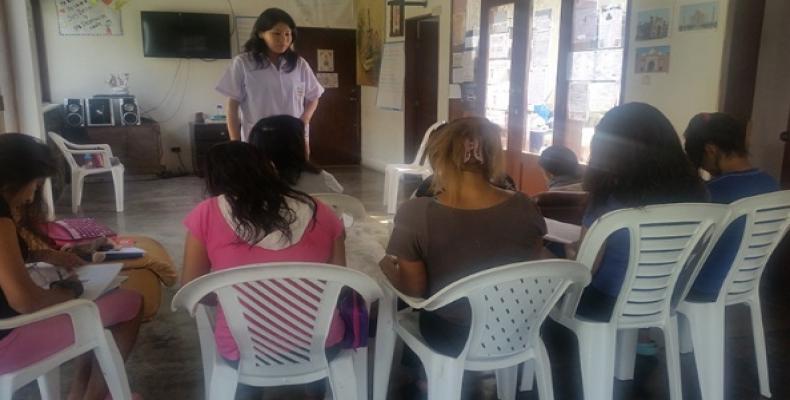Lima, April 24 (teleSUR-RHC)-- The organization “Vida Mujer” or “Women's Life” released on Thursday “No Te Mueras Por Mi” or “Do Not Die For Me” an innovative book which brings to life the stories of battered women in order to raise awareness of the tragic consequences of domestic abuse.
The book is organized into two halves, white and black. The first side of this book includes 25 original love letters, e-mails, or texts messages from men asking their partners for forgiveness and to accept them back. When the book is flipped, the black side reveals the dreadful events that occurred after the letters were received.
The first letter in the white section of the book is written to a woman named Raquel. The writer tells her he made a mistake and that he does not want their trust to be lost. He writes that he knows it is difficult, but he does not want the beauty of their relationship to end. He continues by swearing that what happened will never be repeated and closes with the words “I love you too much, forgive me.” Turning to the first story in the black section, the reader learns what happened to Raquel and the other women who received letters included in the first part of the book.
Starting with Raquel’s story, the book informs the reader that “five weeks after reading the letter, Raquel received the final beating of her life. Today, she is buried in the cemetery of Villa María del Triunfo.”
Juliana Calderon, founder of “Vida Mujer,” tells us why they chose this twofold way of telling the stories. For her, "it represents the confusion of the woman between not knowing whether she made a mistake or did something wrong to cause the beatings. [It shows] how much she can forgive, confronting something like this, thinking that the man was trustworthy. Then finally something dark happened leaving her incapacitated, abused, or raped."
“Vida Mujer” is an institution that provides services for battered women. The organization includes a team of doctors, psychologists, nutritionists and nurses that support women who experience problems of emotional affection after surviving the abuse. The institution helps many women empower themselves and escape domestic violence like Ms Guillen.
Guillen explains how women can be trapped in a position where they accept violence. She states that "a woman that goes through violence gets sick with her aggressor. The aggressor contaminates her, takes her to his sickness to the point that she feels guilty, as if she deserves to be beaten up. It happened to me. With so much aggression, I felt that what he was doing to me was because at some moment I had done something wrong in my life.”


